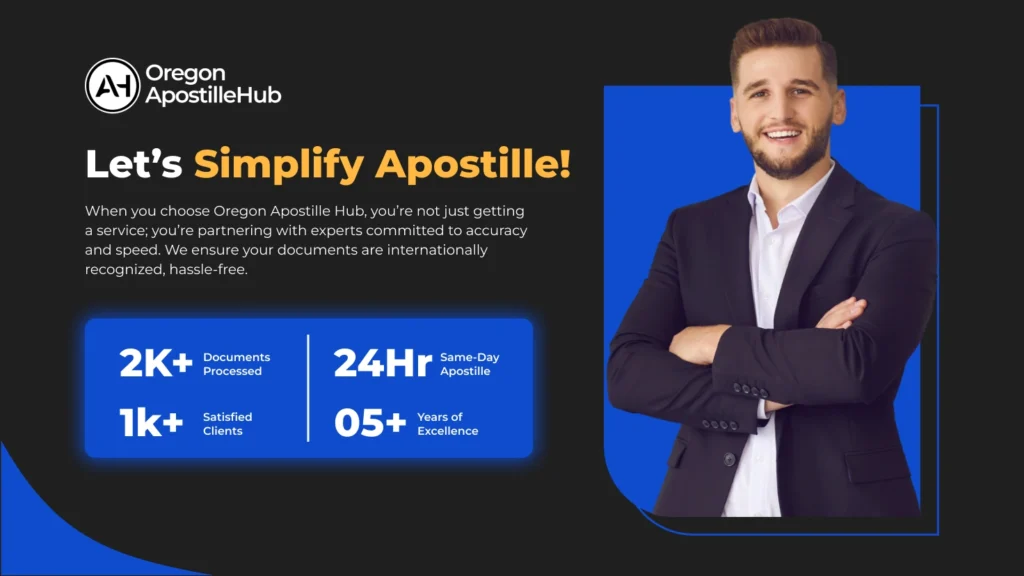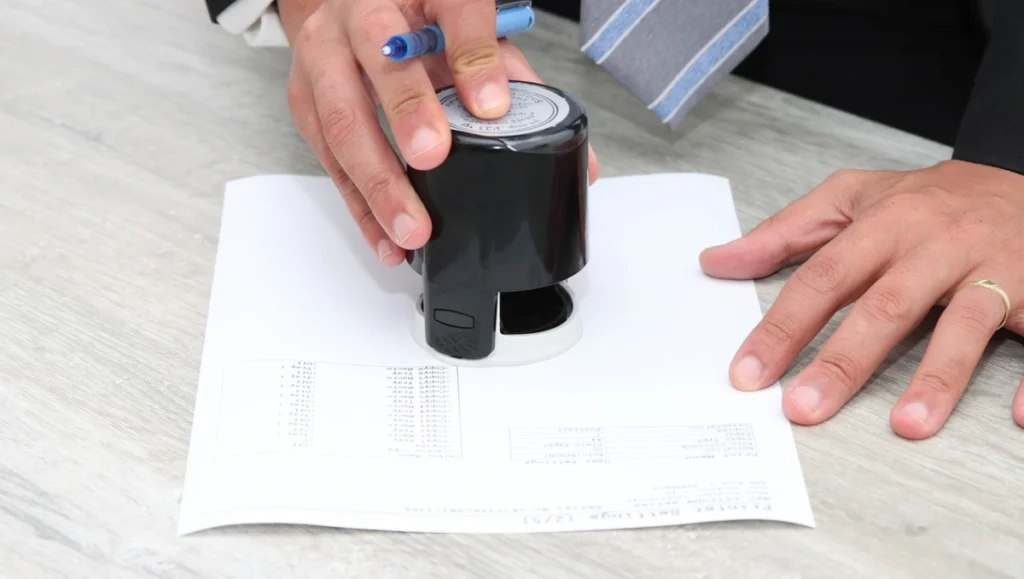Planning to live, work, or study in another country? You might come across a requirement you’ve never dealt with before: getting an apostille.
If that word sounds unfamiliar, you’re not alone. But for anyone dealing with international documents—whether it’s a birth certificate, power of attorney, or diploma—an apostille can be a critical piece of the process.
In this post, we’ll walk you through what is an apostille , how it works, and why it matters, especially if you’re based in Oregon and need to send your documents abroad.
What Is an Apostille?
An apostille is a form of authentication issued for documents that are intended to be used in countries that are part of the Hague Apostille Convention of 1961. It verifies that a document is genuine and has been issued by the proper authority.
Think of it like an international stamp of approval. Instead of going through multiple government departments and embassies, a single apostille certificate serves as proof that your document is legitimate—so long as it’s going to a country that recognizes apostilles.
What an Apostille Confirms:
- The authenticity of the signature on the document
- The capacity in which the person signed it
- The identity of any official stamp or seal
It’s important to note that an apostille doesn’t validate the content of the document—it only authenticates the origin.
Apostille vs. Authentication: What’s the Difference?
Not every country accepts apostilles. So, how do you know which process you need?
| Apostille | Authentication (Legalization) | |
|---|---|---|
| Applies To | Hague Convention member countries | Non-Hague countries |
| Process | Single-step through government authority | Multi-step, including embassy/consulate |
| Turnaround | Typically 1–2 weeks | Can take 4–12 weeks or more |
| Recognition | Accepted by all Hague Convention nations | Only recognized by the specific destination |
If your document is headed to a Hague Convention country, you’ll need an apostille. If not, the more complex authentication process applies.
Which Documents Require an Apostille?
Not every document qualifies—but many commonly used public documents do.
Here’s a breakdown of the most frequently apostilled document types:
| Category | Examples |
|---|---|
| Vital Records | Birth, death, and marriage certificates |
| Educational Records | Diplomas, degrees, transcripts |
| Legal Documents | Powers of attorney, affidavits, court orders |
| Business Documents | Articles of incorporation, bylaws, contracts |
| Identity Documents | Copies of passports, driver’s licenses |
| Property Records | Deeds, titles, and ownership records |
Depending on the document’s origin, the issuing authority may be a state office (like the Oregon Secretary of State) or a federal agency (such as the U.S. Department of State).
How to Get an Apostille in Oregon
The process isn’t as complicated as it might seem—especially if you prepare ahead of time.
Step 1: Prepare Your Documents
Before anything else, your documents must be:
- An original or certified copy
- Properly signed and sealed
- Notarized (if required)
- Translated (if requested by the destination country)
Step 2: Choose Your Submission Method
In Oregon, apostilles are issued by the Secretary of State. Here are your options:
| Submission Type | Processing Time | Cost | Details |
|---|---|---|---|
| 5–10 business days | $10-$20 per document | Include self-addressed return envelope | |
| In-person | Same day to 7 days | $10-$20 per document | Appointments may be required |
| Expedited (where available) | 1–2 business days | $20–$50 | Not always available; confirm in advance |
Common Mistakes to Avoid
Getting an apostille isn’t hard, but small missteps can delay your paperwork or lead to rejection. Here’s what to watch for:
- Submitting photocopies instead of certified originals
- Using expired or incorrectly notarized documents
- Sending documents to the wrong office (state vs. federal)
- Forgetting to check the receiving country’s specific requirements
A simple mistake can cost you days or even weeks—especially when dealing with international deadlines.
Final Thoughts
In an increasingly connected world, documentation needs to travel just like we do. Apostilles helps bridge the legal gap between countries, offering a standardized way to verify documents and avoid bureaucratic red tape.
Whether you’re heading overseas for work, school, adoption, or legal business—getting your apostille handled correctly the first time saves time, stress, and unnecessary delays.

Need Help with Your Apostille in Oregon?
At Oregon Apostille Hub, we specialize in handling apostille requests for individuals, families, and businesses throughout the state. From birth certificates to business filings, we ensure every detail is taken care of—accurately and on time.
Don’t let paperwork slow you down. Reach out to our team today to get started.
+1 (971) 708-3000 or Request a quote online — and let us help you move forward with confidence.

